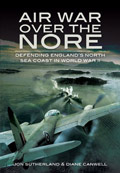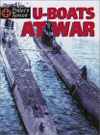Dönitz, The Last Fuhrer
Portrait of a Nazi War Leader
Padfield, Peter
1984,
ISBN 0060152648
523 pages, 30 b&w photos
| Type. | Biography |
| Pros. | Very detailed, many excerpts from original documents |
| Cons. | Very biased; author has an axe to grind |
| Rating. |  |
This book is well-researched, using many original sources (letters, diaries, official documents), and exhaustive in its coverage of the life and deeds of Grossadmiral Karl Dönitz. However, it is not as useful as it could have been, and about 200 pages longer than it had to be, because the author spends much time supporting his thesis, which is evidently based on the opinion that Dönitz was a flagrant war criminal who received too light a sentence at Nuremberg. Rather than stating the facts and allowing readers to draw their own conclusions, Padfield tells us what to think, providing his own interpretations and venturing into speculation and psychoanalysis to try to prove his point.
The final paragraph of the book provides a glimpse of the flavor of the whole, as Padfield attempts to guess Dönitz' deathbed thoughts: "…had he recognized his years of power for what they were, the blood-seal of his nation's pact with the Anti-Christ? Did such a perception rush in perhaps during those last moments on Christmas Eve immediately before he stood before the judgement seat of Christ?"
Besides the endless speculation about Dönitz' thoughts, feelings, and unrecorded deeds, an additional flaw of this book lies in the author's use of "racial" comparisons which one would have thought such an apparent opponent of Nazi tenets would have avoided. Several times Padfield contrasts the German nation and its individual inhabitants unfavorably with Britain and the British, suggesting that Germany's historical and cultural legacy had inevitably led it to a system and its people to a mindset inferior to those of England; he is referring not just to the totalitarianism of the 30s and 40s but also to the "Prussianism" of the previous half century. He even criticizes German leaders on the grounds that they hoped in a mere few years to win an empire of a size that had taken Britain centuries to amass; the complaint here seems not to be not that German leaders wanted to build an empire, but that they expected to do so much more quickly than Britain had.
Unfortunately, there is no authoritative biography of Dönitz in the English language. (His own autobiography, appearing in English as Memoirs: Ten Years and Twenty Days, naturally provides insight into the man but by the very nature of autobiography cannot be considered an objective scholarly evaluation.) Until such time as there is, readers who have the patience will be able to glean some useful historical detail from these 523 opinionated pages.
Review written by Tonya Allen.
Published on 24 Nov 1999.
Return to our main review page.



